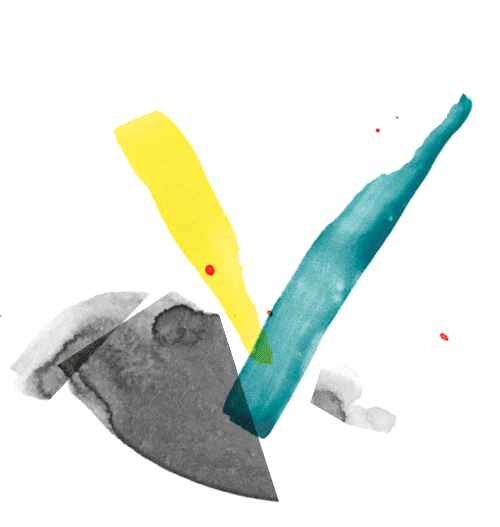

Sign up for our newsletters. You can change the settings or unsubscribe at any time.
Thank you for your subscription. We have sent you an e-mail with a confirmation link.


exp. 1
exp. 2
exp. 3

The Black Mamba – Natasha Mendonca & Suman Sridhar
Venue: KW Institute for Contemporary Art
The Black Mamba – Natasha Mendonca & Suman Sridhar
Founded 2012 in Mumbai, IN
Natasha Mendonca, born 1978 in Mumbai – lives and works in Mumbai
Suman Sridhar, born 1982 in Mumbai – lives and works in Mumbai
Land of the Breasted Woman, a live cinema performance by The Black Mamba featuring Suman Sridhar and Natasha Mendonca, is a queer feminist interrogation of gender, caste, and colonial oppression in India. The legendary Nangeli was an early nineteenth-century freedom fighter from Kerala who was hunted and murdered in a “suiciding” by the European colonizers, the ruling Indian upper caste, and aristocracy of her time for protesting the British-imposed colonial “breast tax.” Lower-caste women were forced to pay a fee in order to cover themselves in public. The bra and saree blouse are Victorian impositions on the Asian female body via taxation. Photographs from the colonial archives reveal a Victorian morality in their gaze. The Upper Cloth Mutiny, or Channar Revolt, one of the earliest documented anti-caste rebellions, abolished the colonial breast tax and was sparked by Nangeli’s life and death. Archival stills and 16mm film footage form the backdrop to poetry, narration, and songs spanning genres of hip-hop, Indian classical music, opera, experimental soundscapes, and field recordings that underscore the clash between oral history and colonial discourses. Who has the power to record the past, and whose account gets remembered? Land of the Breasted Woman is a contemporary funeral lament inspired by the South Asian oppari oral folk tradition of professional female mourners. The ode to the loss of an indigenous woman is a subversion of the tradition that is reserved for mourning the upper-caste male deceased, a performative deconstruction of colonialism and war as trafficking.
The Black Mamba – Natasha Mendonca & Suman Sridhar
Solidarity and Storytelling. Rumors against Enclosure
María Berríos
Essay
IV: How Fear Can Dismantle a Body. Vis-a-Vis with two of four curators of the 11th Berlin Biennale
María Berríos, Lisette Lagnado
Conversation
Undocumented Rumours and Disappearing Acts from Chile
María Berríos
Essay
Maternidades subversivas
María Llopis
Monograph
BLM KOREA ARTS
#BlackLivesMatter #BLMKoreaArts
Young-jun Tak
Statement
Memorial to the Sinti and Roma Victims of National Socialism
Dani Karavan
Memorial
By using this website you agree to the use of cookies in accordance with our data privacy policy.

The Black Mamba – Natasha Mendonca & Suman Sridhar
Venue: KW Institute for Contemporary Art
The Black Mamba – Natasha Mendonca & Suman Sridhar
Founded 2012 in Mumbai, IN
Natasha Mendonca, born 1978 in Mumbai – lives and works in Mumbai
Suman Sridhar, born 1982 in Mumbai – lives and works in Mumbai
Land of the Breasted Woman, a live cinema performance by The Black Mamba featuring Suman Sridhar and Natasha Mendonca, is a queer feminist interrogation of gender, caste, and colonial oppression in India. The legendary Nangeli was an early nineteenth-century freedom fighter from Kerala who was hunted and murdered in a “suiciding” by the European colonizers, the ruling Indian upper caste, and aristocracy of her time for protesting the British-imposed colonial “breast tax.” Lower-caste women were forced to pay a fee in order to cover themselves in public. The bra and saree blouse are Victorian impositions on the Asian female body via taxation. Photographs from the colonial archives reveal a Victorian morality in their gaze. The Upper Cloth Mutiny, or Channar Revolt, one of the earliest documented anti-caste rebellions, abolished the colonial breast tax and was sparked by Nangeli’s life and death. Archival stills and 16mm film footage form the backdrop to poetry, narration, and songs spanning genres of hip-hop, Indian classical music, opera, experimental soundscapes, and field recordings that underscore the clash between oral history and colonial discourses. Who has the power to record the past, and whose account gets remembered? Land of the Breasted Woman is a contemporary funeral lament inspired by the South Asian oppari oral folk tradition of professional female mourners. The ode to the loss of an indigenous woman is a subversion of the tradition that is reserved for mourning the upper-caste male deceased, a performative deconstruction of colonialism and war as trafficking.
The Black Mamba – Natasha Mendonca & Suman Sridhar
A Moment of True Decolonization / Episode #6: Sinthujan Varatharajah. Constructing the Tamil Eelam State
The Funambulist / Sinthujan Varatharajah
Podcast
New Look
Flávio de Carvalho
Performance
III: La familia son quiénes se alegran con nuestros actos diarios. Detrás de las curadoras de la XI
María Berríos, Agustín Pérez Rubio
Conversation
Queer Ancient Ways: A Decolonial Exploration
Zairong Xiang
Monograph
Weaving Solidarity
Renata Cervetto and Duygu Örs
Q&A
Flávio de Carvalho: Fazenda Capuava
Archive of Lisette Lagnado
Photographs
By using this website you agree to the use of cookies in accordance with our data privacy policy.

The Black Mamba – Natasha Mendonca & Suman Sridhar
Venue: KW Institute for Contemporary Art
The Black Mamba – Natasha Mendonca & Suman Sridhar
Founded 2012 in Mumbai, IN
Natasha Mendonca, born 1978 in Mumbai – lives and works in Mumbai
Suman Sridhar, born 1982 in Mumbai – lives and works in Mumbai
Land of the Breasted Woman, a live cinema performance by The Black Mamba featuring Suman Sridhar and Natasha Mendonca, is a queer feminist interrogation of gender, caste, and colonial oppression in India. The legendary Nangeli was an early nineteenth-century freedom fighter from Kerala who was hunted and murdered in a “suiciding” by the European colonizers, the ruling Indian upper caste, and aristocracy of her time for protesting the British-imposed colonial “breast tax.” Lower-caste women were forced to pay a fee in order to cover themselves in public. The bra and saree blouse are Victorian impositions on the Asian female body via taxation. Photographs from the colonial archives reveal a Victorian morality in their gaze. The Upper Cloth Mutiny, or Channar Revolt, one of the earliest documented anti-caste rebellions, abolished the colonial breast tax and was sparked by Nangeli’s life and death. Archival stills and 16mm film footage form the backdrop to poetry, narration, and songs spanning genres of hip-hop, Indian classical music, opera, experimental soundscapes, and field recordings that underscore the clash between oral history and colonial discourses. Who has the power to record the past, and whose account gets remembered? Land of the Breasted Woman is a contemporary funeral lament inspired by the South Asian oppari oral folk tradition of professional female mourners. The ode to the loss of an indigenous woman is a subversion of the tradition that is reserved for mourning the upper-caste male deceased, a performative deconstruction of colonialism and war as trafficking.
The Black Mamba – Natasha Mendonca & Suman Sridhar
Umbilical Cord Amulet
McCord Museum
Object
III: La familia son quiénes se alegran con nuestros actos diarios. Detrás de las curadoras de la XI
María Berríos, Agustín Pérez Rubio
Conversation
New Look
Flávio de Carvalho
Performance
Struggle as Culture: The Museum of Solidarity, 1971–73
María Berríos
Essay
I: Junto a las curadoras de la XI Berlin Biennale for Contemporary Art
Renata Cervetto, Lisette Lagnado
Conversation
Queer Ancient Ways: A Decolonial Exploration
Zairong Xiang
Monograph
By using this website you agree to the use of cookies in accordance with our data privacy policy.

The Black Mamba – Natasha Mendonca & Suman Sridhar
Venue: KW Institute for Contemporary Art
The Black Mamba – Natasha Mendonca & Suman Sridhar
Founded 2012 in Mumbai, IN
Natasha Mendonca, born 1978 in Mumbai – lives and works in Mumbai
Suman Sridhar, born 1982 in Mumbai – lives and works in Mumbai
Land of the Breasted Woman, a live cinema performance by The Black Mamba featuring Suman Sridhar and Natasha Mendonca, is a queer feminist interrogation of gender, caste, and colonial oppression in India. The legendary Nangeli was an early nineteenth-century freedom fighter from Kerala who was hunted and murdered in a “suiciding” by the European colonizers, the ruling Indian upper caste, and aristocracy of her time for protesting the British-imposed colonial “breast tax.” Lower-caste women were forced to pay a fee in order to cover themselves in public. The bra and saree blouse are Victorian impositions on the Asian female body via taxation. Photographs from the colonial archives reveal a Victorian morality in their gaze. The Upper Cloth Mutiny, or Channar Revolt, one of the earliest documented anti-caste rebellions, abolished the colonial breast tax and was sparked by Nangeli’s life and death. Archival stills and 16mm film footage form the backdrop to poetry, narration, and songs spanning genres of hip-hop, Indian classical music, opera, experimental soundscapes, and field recordings that underscore the clash between oral history and colonial discourses. Who has the power to record the past, and whose account gets remembered? Land of the Breasted Woman is a contemporary funeral lament inspired by the South Asian oppari oral folk tradition of professional female mourners. The ode to the loss of an indigenous woman is a subversion of the tradition that is reserved for mourning the upper-caste male deceased, a performative deconstruction of colonialism and war as trafficking.
The Black Mamba – Natasha Mendonca & Suman Sridhar
COVID-19 VIDEOS
Carlos Motta
Video
Expresiones de la locura: el arte de los enfermos mentales
Hans Prinzhorn
Monograph
#fight4rojava
Graffiti
Touching Feeling. Affect, Pedagogy, Performativity
Eve Kosofsky Sedgwick
Monograph
Weaving Solidarity
Renata Cervetto and Duygu Örs
Q&A
St Sara Kali George
Delaine Le Bas
Soundscape
By using this website you agree to the use of cookies in accordance with our data privacy policy.
By using this website you agree to the use of cookies in accordance with our data privacy policy.




